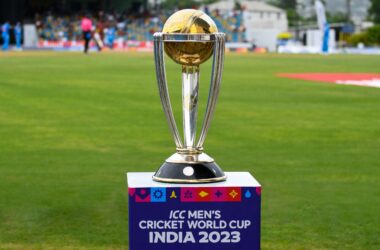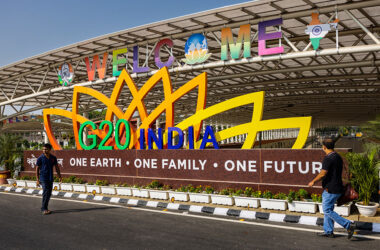Prime Minister of India

Narendra Damodardas Modi is an Indian politician who has served as the 14th prime minister of India since May 2014. Modi was the Chief Minister of Gujarat from 2001 to 2014 and is the Member of Parliament for Varanasi.
After the Bharatiya Janata Party-led National Democratic Alliance (NDA) won a landslide in the 2014 Lok Sabha election, Modi was sworn in as Prime Minister (PM) of India on 26 May 2014, becoming the first Indian PM to be born after the country’s independence from the British Empire in 1947.Modi’s second term as PM began in 2019 following the NDA’s 2019 Lok Sabha election win. On 6 December 2020, he became the fourth-longest-serving Prime Minister of India and the longest-serving non-Congress prime minister.
Modi’s administration launched the 2019 Balakot airstrike against an alleged terrorist training camp in Pakistan. The airstrike failed, and the deaths of six Indian personnel to friendly fire was later revealed: but the action had nationalist appeal. Modi’s party comfortably won the 2019 general election which followed.In its second term, his administration revoked the special status of Jammu and Kashmir, an administered portion of the disputed Kashmir region, and introduced the Citizenship Amendment Act, prompting widespread protests, and spurring the 2020 Delhi riots in which Muslims were brutalised and killed by Hindu mobs, sometimes with the complicity of police forces controlled by the Modi administration.Three controversial farm laws, led to sit-ins by farmers across the country, eventually causing their formal repeal. Modi oversaw India’s response to the COVID-19 pandemic, during which 4.7 million Indians died, according to the World Health Organization‘s estimates.
Amit Shah launched the BJP’s election campaign on 8 April 2019. In the campaign, the opposition targeted Modi on allegations of corruption over the Rafale deal with the Government of France, highlighting the controversy surrounding the deal.[226] Modi’s campaign focused on defence and national security, especially after the Pulwama attack and the retaliatory Balakot airstrike, which was counted as an achievement of his administration.[16][227] Other topics in the campaign were development and good foreign relations in the first premiership.[228]
Modi contested the Lok Sabha election as a candidate for Varanasi; he won the seat by a margin of 479,505 votes, defeating Shalini Yadav of the Samajwadi Party (SP), who stood as a candidate for the SP-BSP alliance.Modi was unanimously appointed prime minister for a second time by the National Democratic Alliance after the alliance won the election for the second time with 353 seats in the Lok Sabha; the BJP alone won 303 seats.
Foreign policy played a small role in Modi’s election campaign and did not feature prominently in the BJP’s election manifesto.Modi’s foreign policy, similarly to that of the preceding Congress government, focused on improving economic ties, security and regional relations.Modi continued Manmohan Singh’s policy of “multi-alignment”.The Modi administration tried to attract foreign investment in the Indian economy from several sources, especially East Asia, with the use of slogans such as “Make in India” and “Digital India“. The government also tried to improve relations with Islamic nations in the Middle East, such as Bahrain, Iran, Saudi Arabia and the United Arab Emirates, as well as with Israel.










